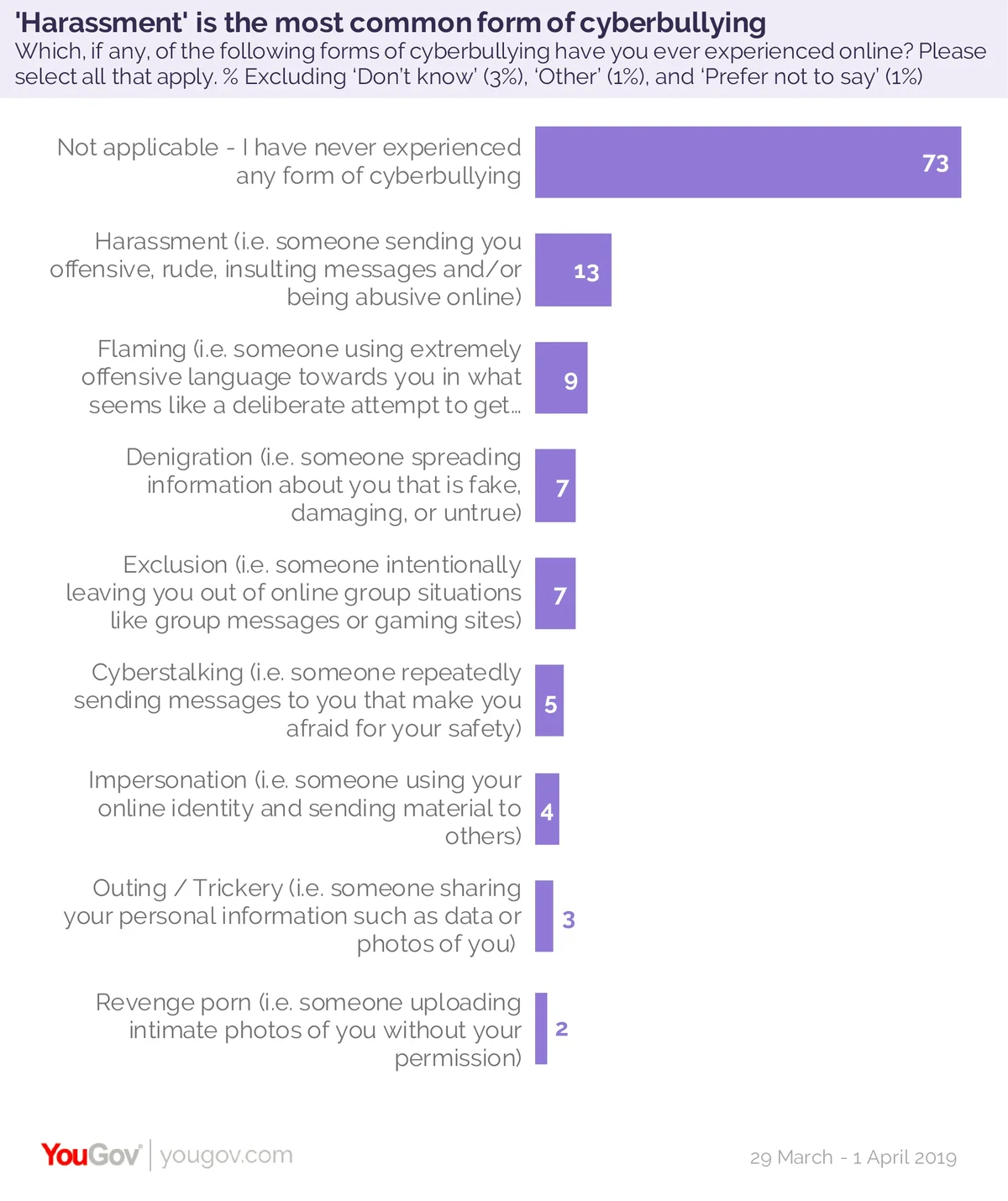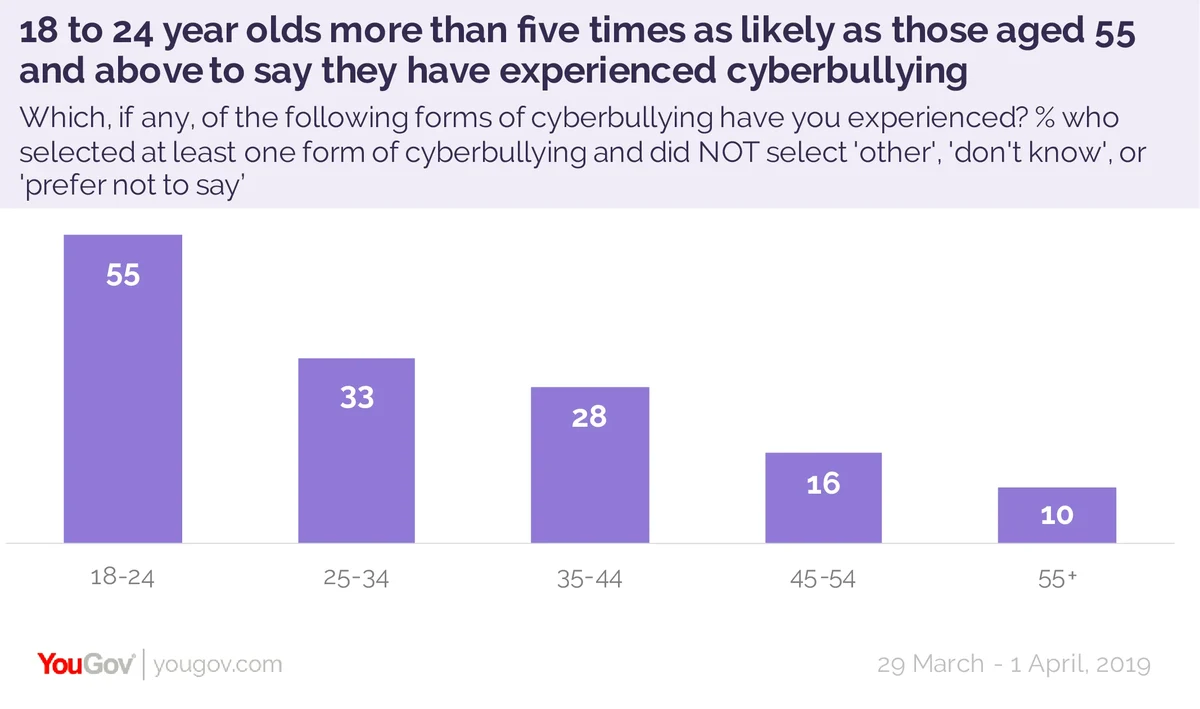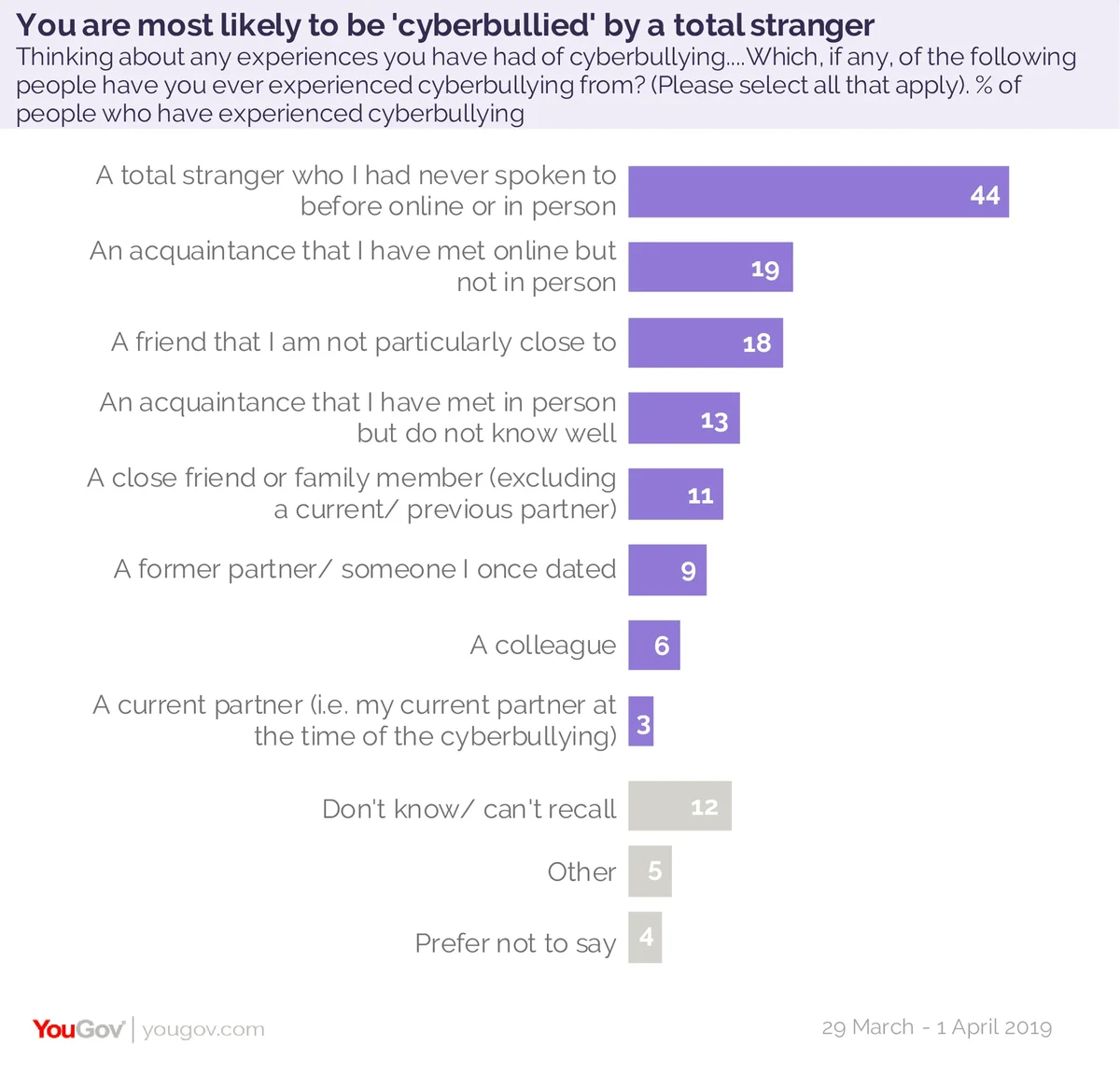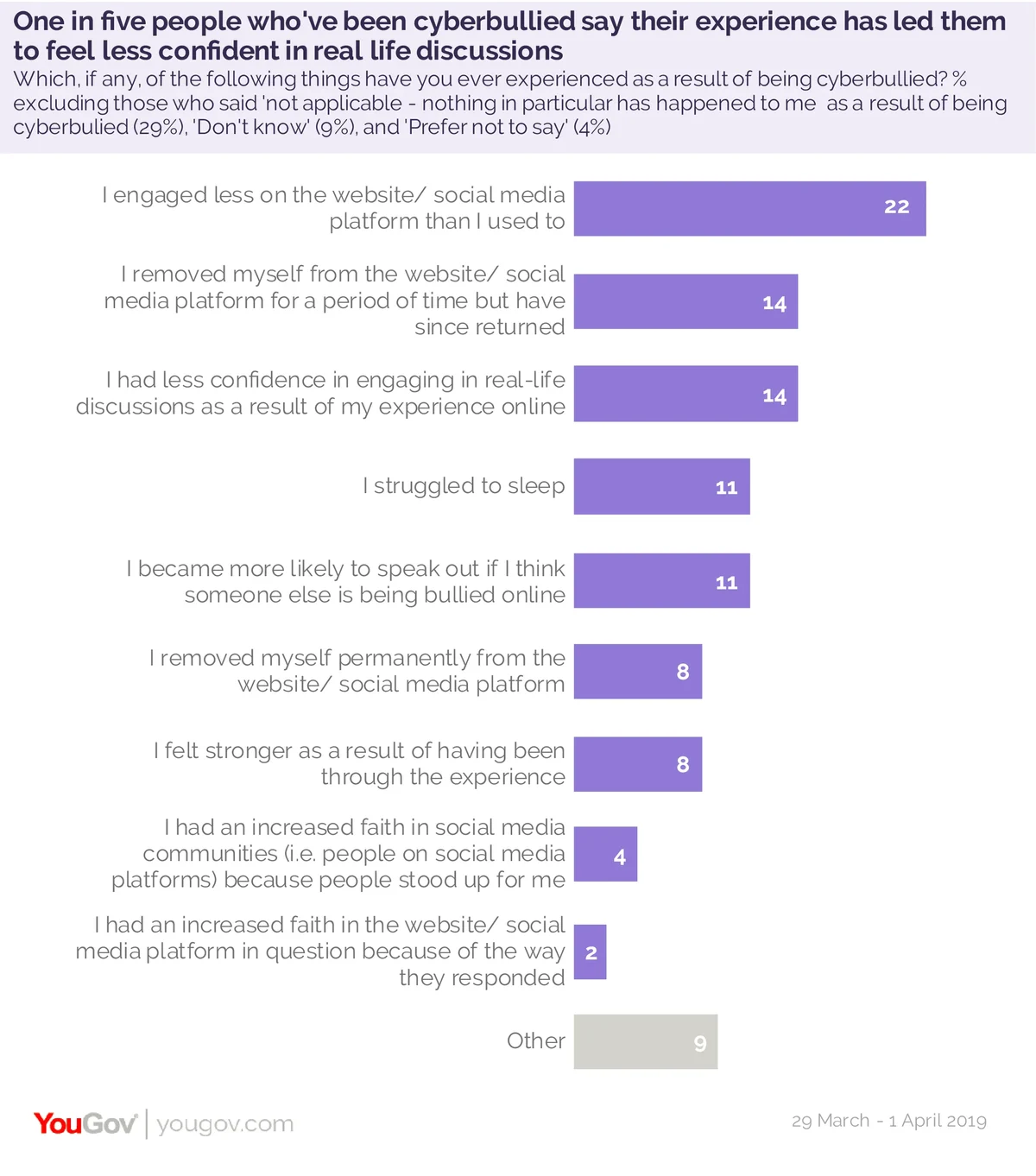18 to 24 year olds are the most likely group to be bullied online, but the unpleasant practice affects Britons of every age - and leads to confidence problems in real life conversations
A number of recent campaigns have tackled cyberbullying among children. But new YouGov research reveals that it also affects adults, ranging from outright abuse to cyberstalking and social exclusion.
One in eight Britons have been harassed online
One in four Britons (23%) say they have experienced some form of cyberbullying before. Of these, one in ten (10%) have experienced it in the last fortnight alone. Another one in six (15%) say it’s happened to them in the last six months, while half (52%) of cyberbullying victims said the last time it happened was over a year ago.
The most common form of cyberbullying is harassment, when a person sends abusive or hateful messages. One in eight Brits (13%) say this has happened to them before. Flaming is when someone uses offensive language in a deliberate attempt to get into a fight - something which has been experienced by one in eleven (9%) Britons online.

Like any other social space, people can bully you online simply by excluding you. One in fourteen (7%) Brits feel this has happened to them online.
One in twenty (5%) have been cyberstalked, where someone sends messages repeatedly that make you afraid for your safety.
One in fourteen (7%) have had someone spread fake and potentially damaging information about them online, and 4% say someone has impersonated them online and messaged a third party.
18 to 24 year olds most likely to experience cyberbullying
Cyberbullying is significantly more common among young people - just four in ten 18 to 24 year olds (43%) say they’ve never experienced any of the above forms of cyberbullying, leaving half of 18 to 24 year olds (52%) who have (the remaining respondents said ‘don’t know’ or ‘prefer not to say’).
By comparison, nine out of ten (87%) of those aged 55 and above say they’ve never experienced any of the listed forms of cyberbullying.

Most of those who reported cyberbullying say it happened on Facebook (56%). One in six (15%) say it has happened to them on Twitter. Around one in fourteen (7%) have been bullied on YouTube, or Snapchat (6%).
You’re most likely to be bullied online by a total stranger
Our research reveals that you’re more likely to be cyberbullied by a total stranger. Four in ten (44%) of those who’ve experienced it say it came from someone they’d never spoken to online or in person before. This is particularly common among those aged 55 and above (56%).

One in five (19%) victims say it was an acquaintance they’d met online, but not in person, while one in ten (11%) say it was a close friend or family member.
One in thirty (3%) say the perpetrator was their current partner, and three times as many (9%) have been cyberbullied by an ex.
Some have experienced cyberbullying from a person they know but not well - one in five (18%) say it was a friend they aren’t particularly close to, and one in eight (13%) say it was an acquaintance they’ve met in person but don’t know well - though both these figures are significantly higher among 18 to 24 year olds (30% and 22% respectively).
The majority of cyberbullying victims did not report the incident to the website it happened on
Just over half (53%) of those who’ve experienced cyberbullying have never reported the incident to the website or service in question.
One in eight (12%) always reported it, while just over one in six (17%) reported only occasionally.
Women are ten percentage points more likely than men to say they’ve never reported an incident (58% versus 48%).
Among those who chose not to report, half (50%) said it was because they didn’t think it would make any difference. A quarter (24%) thought they wouldn’t be taken seriously, and around one in eight didn’t understand (12%) or trust (13%) the process.
Cyberbullying affects confidence in real-life discussions
A third (29%) of people who’ve experienced cyberbullying say they carried on with life as normal, with no particular consequences. But one in five (22%) say it caused them to engage less on the website or social media platform.

Shockingly, one in four (23%) 18 to 24 year olds who’ve experienced cyberbullying say they have less confidence engaging in real life discussions as a result of their experience online - compared to one in seven (14%) of cyberbullying victims across all age groups.
One in seven (14%) people removed themselves entirely from the website for a period, but have since returned, while one in twelve (8%) removed themselves permanently from it. One in nine (11%) say they struggled to sleep because of what happened.
Still, some reported silver linings to their experience: one in nine (11%) say they are now more likely to speak out if they think someone else is being bullied online, and just under one in twenty (4%) feel their faith in social media communities has increased because others stood up for them.
Photo: Getty
See full results here






